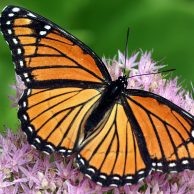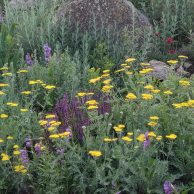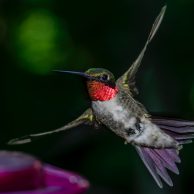 Monarch butterflies previously considered Threatened, have now been classified as Endangered by the International Union for Conservation of Nature, the world’s most comprehensive scientific authority on the status of species. Two major driving factors are habitat loss (and thus, food loss), and climate change.
Monarch butterflies previously considered Threatened, have now been classified as Endangered by the International Union for Conservation of Nature, the world’s most comprehensive scientific authority on the status of species. Two major driving factors are habitat loss (and thus, food loss), and climate change.
“The numbers of Western monarchs, which live west of the Rocky Mountains, plummeted by an estimated 99.9 percent between the 1980s and 2021. While they rebounded somewhat this year, they remain in great peril. Eastern monarchs, who make up most of the population in North America, dropped by 84 percent from 1996 to 2014. The new designation of endangered covers both populations.” (New York Times.) [Read More]

 We’re excited that the City of Boulder is gathering feedback from the community about how we use our yards, preferences for landscaping and interest in a citywide effort to create pollinator habitat patches and pathways. Pollinator pathways connect safe, pesticide-free native plant patches of habitat for bees, birds, butterflies, and other wildlife to provide food and nesting sites. Native pollinators are vital to our ecosystems and pathways support pollinator populations, as well as safe passage for movement across the city.
We’re excited that the City of Boulder is gathering feedback from the community about how we use our yards, preferences for landscaping and interest in a citywide effort to create pollinator habitat patches and pathways. Pollinator pathways connect safe, pesticide-free native plant patches of habitat for bees, birds, butterflies, and other wildlife to provide food and nesting sites. Native pollinators are vital to our ecosystems and pathways support pollinator populations, as well as safe passage for movement across the city. Hummingbirds are zipping and humming and sipping around our gardens, partaking of the summer’s bounty of nectar-rich flowers, many of which are ‘color-coded’ specifically to attract them. And you’ll want hummers in your garden, not only because they’re beautiful, not only because some plants depend on them for pollination, not only because migratory birds are imperiled, but also because they eat prodigious numbers of small flying insects like mosquitoes! And did you know, some hummingbird have been known to live up to 25 years!
Hummingbirds are zipping and humming and sipping around our gardens, partaking of the summer’s bounty of nectar-rich flowers, many of which are ‘color-coded’ specifically to attract them. And you’ll want hummers in your garden, not only because they’re beautiful, not only because some plants depend on them for pollination, not only because migratory birds are imperiled, but also because they eat prodigious numbers of small flying insects like mosquitoes! And did you know, some hummingbird have been known to live up to 25 years!